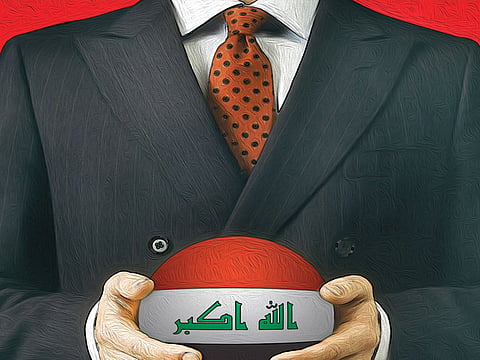Technocrats need to rule Iraq
It is hoped that the actions taken by Al Abadi were motivated by a genuine political will to carry out reforms and not to absorb the anger of protesters

The uprising in Baghdad on August 7 was the largest since that of March 2011. However, both differ in some respects.
The common motive behind both demonstrations — despite the variation in their severity and deteriorating situation in the country on all levels — was the electricity crisis. And while the 2011 uprising was influenced by waves of massive unrest and demonstrations that swept the capitals of some Arab countries, the current Iraqi upheaval is different.
This uprising is the result of the enormous suffering of the majority of the Iraqi people. There is a shift in the awareness of the Iraqi citizen regarding the political and social realities, away from the influence and dominance of political parties. Moreover, this revolt was organised by civil society organisations.
The current situation in Iraq has been building up over the years as a result of failure, frustration, poor performance and corruption that characterise the policies of parties with religious facades that imposed themselves on the political scene since the fall of the former regime. These parties now seek to ride the wave of the upheaval and absorb the anger of the masses by claiming to support the movement.
Iraqi Prime Minister Haidar Al Abadi did not suppress this uprising in the manner that the 2011 demonstrations were subdued by former Iraqi premier Nouri Al Maliki. Instead, Al Abadi responded to the people’s demands and thus got their mandate to free himself from the constraints of consensuses and commitments and obligations, which had delivered him previously to the post of prime minister. Thus, he is no longer obliged to approach political blocs for accords and compromises. The reform package prepared by Al Abadi to slim down the state was approved by the cabinet and the parliament. Moreover, his step comes as the first action taken within a comprehensive reform plan, which he pledged to implement.
Abadi’s decisions were met with broad public support, while politicians and political blocks met these reforms with reservations, fear, and unease.
The reason is that eliminating corruption will not simply exclude some politicians from the scene but there will be a political price that they will have to pay in courts, and so will their parties’ which is their ultimate concern.
The electricity issue, which was the initial reason behind the public outrage, is not the only corruption file, as there are many others that must be opened with transparency. They include the systematic destruction of the Iraqi army, losing one third of Iraq to Daesh (the self-proclaimed Islamic State of Iraq and the Levant), the Speicher base case, the militia files, the indecent and sudden wealth of those who used to live in Europe and the West before 2003 on social benefits, the unemployment issue, with one third of Iraqis living under the poverty line according to the Iraqi Ministry of Planning, and the issues of the displaced and the migrants. The financial and administrative corruption is political in essence, and its responsibility has lain on the shoulders of the ruling political class since 2003.
Al Abadi’s inheritance from his predecessor Al Maliki is very negative. Reforms require the abolition of certain posts and certain privileges, and the reduction of huge salaries given to some officials, while shrinking the numbers of their bodyguards, and this is only to mention a few.
The bad legacy inherited by Abadi from his predecessor, Al Maliki is huge; Reforms require the abolition of certain posts and certain privileges, and the reduction of huge salaries given to some officials while shrinking the numbers of their bodyguards, and this is only mentioning a few.
The injustice and neglect languishing beneath most Iraqis it is enough to recall that Basra is probably the richest among world cities drink salt water.
What made people take to the streets was the huge neglect, and the injustice felt by all Iraqis, and it is enough to know that the wealthiest province in Iraq — Basra — drinks nothing but saline water.
Corruption has seriously multiplied and is run by mafias, which are not expected to give up their privileges.
Political will
We hope that the actions taken by Al Abadi were motivated by a genuine political will to carry out reforms and not to absorb the anger of protesters. So will Al Abadi take this to the end?
And can he take action against parliamentary bloc leaders in his own party and in the broad national coalition his bloc belongs to? And will he find those that will support him amidst a consensual tradition established in the Iraqi parliamentary political process?
Will the judicial system be able to deal independently, and with fairness and freedom with the huge thorny corruption files? And will Al Abadi be able to safeguard the situation despite the presence of heavily armed militias that have allegiances to certain parties or individuals?
Will he be able to safeguard himself or his agenda from the influence of some neighbouring countries that lean on and utilise corrupt people at the top to impose their presence in Iraq?
The ongoing political process in Iraq is no longer facing obstacles, instead, it has reached a deadlock and it is doubtful that the existing institutions — judicial, executive — will be up to carrying out a real and comprehensive reform plan.
Perhaps the best way out of the crisis is the formation of a government of technocrats to run the daily affairs of the country and to task a reputable international auditing bureau to make a full disclosure about the fate of Iraq’s wealth since the fall of the former regime.
Mohammad Akef Jamal is an Iraqi writer based in Dubai.


